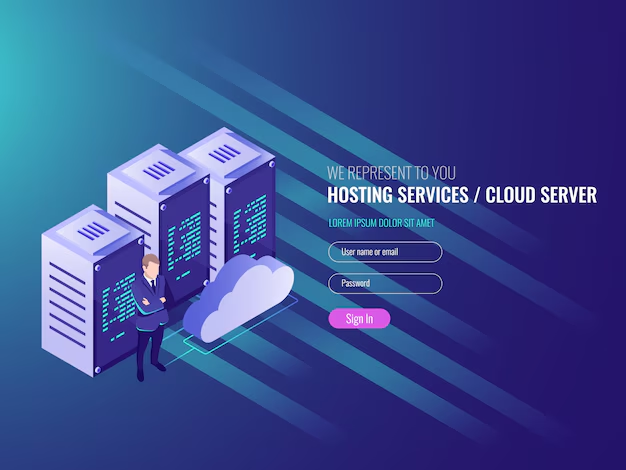For small business owners, a strong online presence is crucial to compete and thrive in today’s digital landscape. A website serves as the foundation of this presence, and selecting the right hosting solution is key to its success. Managed hosting, where the provider takes care of server management, updates, and maintenance, offers a range of benefits for small business websites.
What is Managed Hosting?

Managed hosting is a service where the hosting provider takes over the technical aspects of running a website, including server configuration, updates, security, and backups. This allows businesses to focus on growth and operations without worrying about the complexities of managing a server.
The Key Benefits of Managed Hosting for Small Businesses
1. Simplified Website Management
- Ease of Use: Managed hosting providers handle technical tasks like software updates, server optimization, and security patches.
- Time-Saving: Business owners can focus on running their operations without dealing with server-related complexities.
2. Enhanced Security
- Proactive Protection: Managed hosting includes advanced security measures like firewalls, malware scanning, and DDoS protection.
- Regular Updates: Providers ensure that software and systems are up-to-date to prevent vulnerabilities.
3. Reliable Performance
- Optimized Servers: Managed hosting ensures faster load times and better overall website performance.
- Resource Allocation: Dedicated resources prevent slowdowns even during traffic spikes.
4. Expert Technical Support
- 24/7 Assistance: Managed hosting services offer round-the-clock support to resolve issues promptly.
- Specialized Knowledge: Teams are experienced in handling specific platforms like WordPress, ensuring efficient solutions.
5. Automatic Backups
- Data Security: Regular backups protect your data in case of accidental deletion or cyberattacks.
- Quick Recovery: Easy restoration of your website minimizes downtime.
6. Scalability
- Flexibility: Managed hosting plans can scale with your business as your website grows.
- Seamless Upgrades: Providers handle upgrades to accommodate increased traffic or new features.
7. Cost-Effectiveness
- All-Inclusive Packages: While managed hosting is more expensive upfront, it eliminates the need for hiring in-house IT staff or third-party services.
- Long-Term Savings: Preventing downtime and security breaches saves money in the long run.
8. Custom Solutions
- Tailored Services: Many providers offer customized plans to suit the specific needs of small businesses.
- Platform Optimization: Managed hosting is often optimized for platforms like WordPress or e-commerce solutions.
Why Small Businesses Need Managed Hosting
Small businesses typically lack the resources or expertise to manage complex server environments. Managed hosting offers a hassle-free solution, providing robust infrastructure, reliable support, and peace of mind. It allows small businesses to compete with larger companies by ensuring their website runs smoothly and securely.
Top Managed Hosting Providers for Small Businesses
- Bluehost
- Best for WordPress users.
- Features: Free domain, SSL certificate, and automatic backups.
- SiteGround
- Renowned for excellent customer support.
- Features: Optimized for speed and security.
- WP Engine
- Focused on WordPress hosting.
- Features: High-performance hosting with advanced security.
- Kinsta
- Offers premium managed hosting.
- Features: Cloud-based infrastructure and expert support.
- Liquid Web
- Ideal for businesses needing scalable solutions.
- Features: Advanced security and fully managed services.
Conclusion
Managed hosting is a game-changer for small businesses looking to establish a reliable and secure online presence. By outsourcing server management to professionals, small business owners can focus on their core operations while benefiting from enhanced performance, robust security, and expert support. Investing in managed hosting ensures that your website is always online, responsive, and ready to serve customers, making it an invaluable asset for growth and success.
FAQs
1. What is the difference between managed and unmanaged hosting?
- Managed Hosting: The provider handles server management, updates, and security.
- Unmanaged Hosting: The user is responsible for all server-related tasks, requiring technical expertise.
2. Is managed hosting more expensive than shared hosting?
Yes, managed hosting costs more due to the additional services and support, but it offers better performance, security, and reliability.
3. Do small businesses need managed hosting?
Small businesses benefit from managed hosting as it eliminates technical burdens and ensures smooth website operations.
4. Can I switch from unmanaged to managed hosting?
Yes, most hosting providers allow you to upgrade to a managed plan.
5. Is managed hosting suitable for e-commerce websites?
Absolutely! Managed hosting ensures secure transactions, faster loading times, and high uptime, making it ideal for e-commerce.
6. What kind of websites benefit most from managed hosting?
Websites requiring high security, reliable performance, and minimal downtime—such as e-commerce, business, and high-traffic blogs—benefit the most.
7. Does managed hosting support WordPress websites?
Yes, many managed hosting plans are specifically optimized for WordPress, offering enhanced performance and features.

